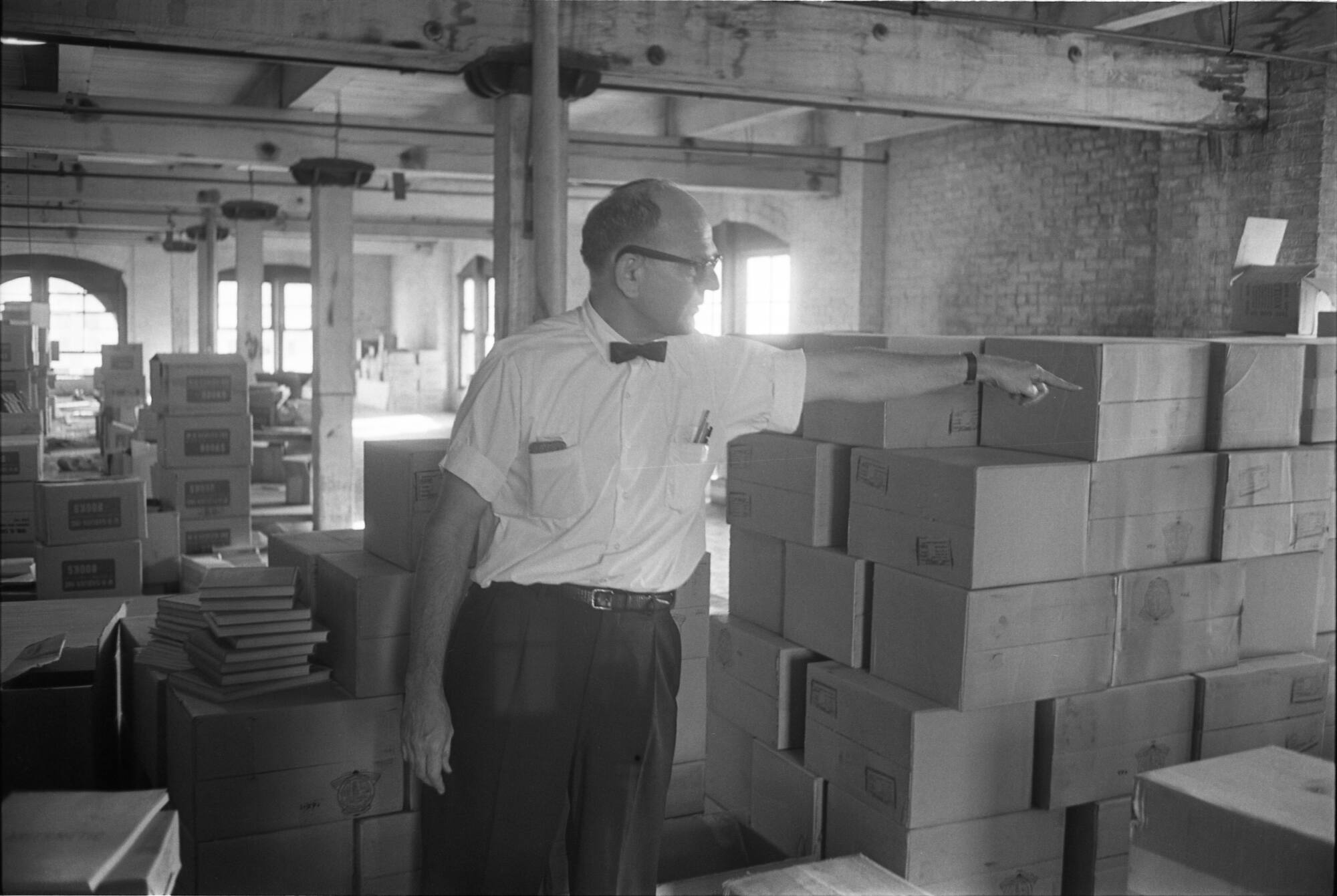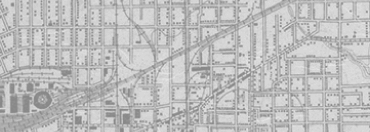


Back
Image of Dallas Police Lieutenant J.C. "Carl" Day pointing to the rifle location
Original 35mm black and white negative taken by Dallas Times Herald staff photographer William Allen. This image shows Dallas Police Lieutenant, J.C. "Carl" Day, pointing to the area near the northwest corner of the Texas School Book Depository's sixth floor where Dallas Sheriff's deputies found the rifle used in the Kennedy assassination. The rifle had been hidden between some boxes. Lt. Day was head of the Dallas Police Crime Scene Search Unit responsible for the forensic investigation of physical evidence.
Image of Dallas Police Lieutenant J.C. "Carl" Day pointing to the rifle location
11/22/1963
Film
15/16 x 1 7/16 in. (2.4 x 3.6 cm)
William Allen, photographer, Dallas Times Herald Collection/The Sixth Floor Museum at Dealey Plaza
1989.100.0023.0010
When sharing this photograph with school groups during education programs about assassination evidence, students are often shocked to learn that this image was taken by a newspaper photographer rather than a crime scene investigator. It demonstrates the persistent presence of news media on the sixth floor of the Texas School Book Depository while evidence was still being gathered. In addition to William Allen of the Dallas Times Herald, local WFAA-TV photographer Tom Alyea had unrestricted access on the sixth floor and took 16mm film of investigators climbing on boxes looking for evidence, examining the sniper's perch and even Lt. Carl Day (seen in this photo) dusting the Mannlicher-Carcano rifle for prints. (Eager for WFAA to have exclusive film of the crime scene, Alyea even tossed reels of film out a Depository window or doorway to a waiting employee to race it back to the TV station.) While this film and photography is historically significant, some have questioned why members of the media were allowed to wander around unescorted, photographing an active crime scene. It has contribued to accusations that the crime scene was contaminated, and any evidence recovered that day is subject to criticism. -- Stephen Fagin, Curator

Image of Dallas Police Lieutenant J.C. "Carl" Day pointing to the rifle location
Original 35mm black and white negative taken by Dallas Times Herald staff photographer William Allen. This image shows Dallas Police Lieutenant, J.C. "Carl" Day, pointing to the area near the northwest corner of the Texas School Book Depository's sixth floor where Dallas Sheriff's deputies found the rifle used in the Kennedy assassination. The rifle had been hidden between some boxes. Lt. Day was head of the Dallas Police Crime Scene Search Unit responsible for the forensic investigation of physical evidence.
Image of Dallas Police Lieutenant J.C. "Carl" Day pointing to the rifle location
11/22/1963
Boxes
Evidence
Rifles
Windows
Mannlicher-Carcano
Investigations
Photographs
Allen, William
Day, Carl
Dallas Times Herald
Dallas Police Crime Scene Search Unit
Texas School Book Depository
Dallas
Film
15/16 x 1 7/16 in. (2.4 x 3.6 cm)
William Allen, photographer, Dallas Times Herald Collection/The Sixth Floor Museum at Dealey Plaza
1989.100.0023.0010
When sharing this photograph with school groups during education programs about assassination evidence, students are often shocked to learn that this image was taken by a newspaper photographer rather than a crime scene investigator. It demonstrates the persistent presence of news media on the sixth floor of the Texas School Book Depository while evidence was still being gathered. In addition to William Allen of the Dallas Times Herald, local WFAA-TV photographer Tom Alyea had unrestricted access on the sixth floor and took 16mm film of investigators climbing on boxes looking for evidence, examining the sniper's perch and even Lt. Carl Day (seen in this photo) dusting the Mannlicher-Carcano rifle for prints. (Eager for WFAA to have exclusive film of the crime scene, Alyea even tossed reels of film out a Depository window or doorway to a waiting employee to race it back to the TV station.) While this film and photography is historically significant, some have questioned why members of the media were allowed to wander around unescorted, photographing an active crime scene. It has contribued to accusations that the crime scene was contaminated, and any evidence recovered that day is subject to criticism. -- Stephen Fagin, Curator









